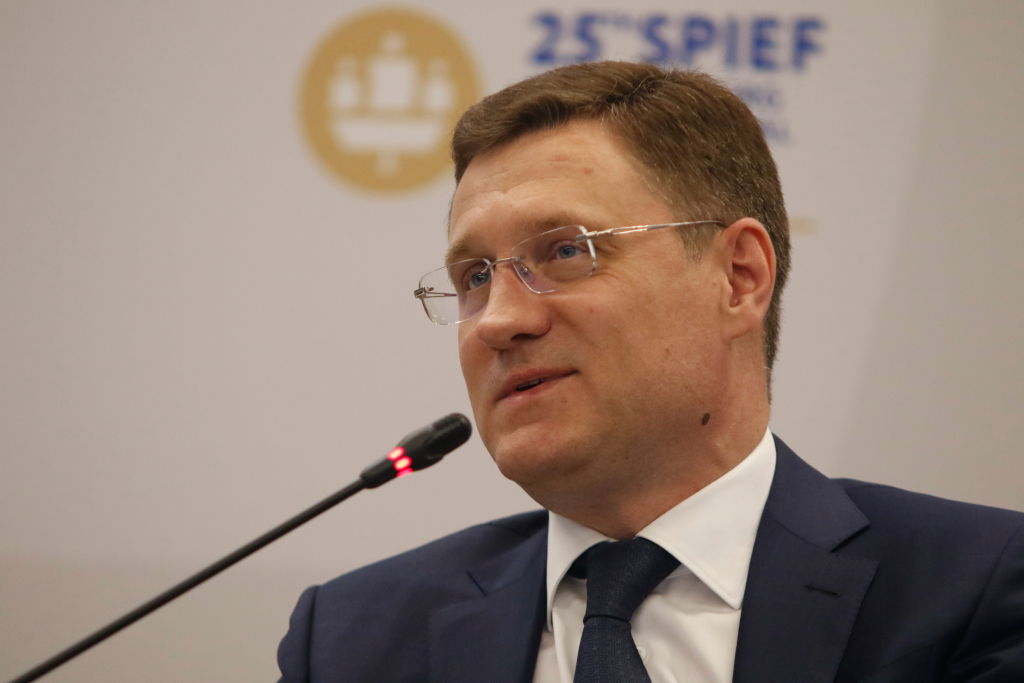
Russia said it will cut oil output by 500,000 barrels a day next month, following through on a threat to retaliate against western sanctions and sending oil prices sharply higher.
The output reduction, which is the equivalent of about 5% of January output, has been hinted at repeatedly by the Kremlin since the European Union and G-7 began discussing capping the price of Russian exports. The move threatens renewed turmoil in an oil market that has otherwise taken in its stride the EU bans on most seaborne imports of Russian oil.
Crude prices jumped on the news, with Brent erasing earlier losses to rise as much as 2% to $86.50 a barrel as of 8:50 a.m. in London. Prior to this week, the international benchmark had dropped 9% since mid-January, helping to ease inflationary concerns.
“Russia believes that the mechanism of price caps on Russian oil and petroleum products is an intervention in market relations and an extension of destructive energy policies of the collective West,” Deputy Prime Minister Alexander Novak said in a statement on Friday. His press service confirmed that crude output will be affected by the cuts.
Moscow’s move deepens the 2 million barrel-a-day supply curbs announced late last year by OPEC+, which Russia leads along with Saudi Arabia. At a committee meeting earlier this month, ministers from the group saw no need to change their production limit, which lasts until the end of 2023.
Since the imposition of EU import bans and the price cap “most observers expected some output loss, and Moscow may just be attempting to portray a compulsory cut as a voluntary policy choice,” said Bob McNally, president of Rapidan Energy Group and a former White House official. “I doubt Russia’s OPEC+ partners were taken by surprise and do not expect the supply reduction will alter their ‘stay put’ policy stance.”
Read More: Column: Russia Is Still Winning the Energy War
In the short term there is nobody to fill the supply gap created by the Russian cuts, said Giovanni Staunovo, an analyst at UBS Group AG.
“OPEC+ might increase their group’s quota or unwind their cuts later this year,” he said. “There is no pressure to change anything production-wise at present.”
As of now, Russia is able to sell its oil volumes to foreign markets, but it does not want to adhere to the price restrictions imposed by Western nations, Novak said. “When making further decisions, we will act based on how the market situation is developing,” he said.
Moscow’s oil revenue has taken a hit in recent months. The decline of about $40 a barrel in Brent crude since June has been the biggest factor. The discount at which Urals crude — Russia’s main export grade — trades to the international benchmark has also widened as the EU import ban and G-7 price cap forced the country to seek out new markets and alternative methods of shipment.
Even so, Russian production has been surprisingly resilient. Since hitting a post-invasion low of 10.05 million barrels a day in April, Russian oil production rebounded to around 10.9 million barrels a day at the end of 2022. It stayed close to that level in January, despite the European Union’s ban on most seaborne imports of the country’s crude on Dec. 5.
More Must-Reads From TIME
- The 100 Most Influential People of 2024
- Coco Gauff Is Playing for Herself Now
- Scenes From Pro-Palestinian Encampments Across U.S. Universities
- 6 Compliments That Land Every Time
- If You're Dating Right Now , You're Brave: Column
- The AI That Could Heal a Divided Internet
- Fallout Is a Brilliant Model for the Future of Video Game Adaptations
- Want Weekly Recs on What to Watch, Read, and More? Sign Up for Worth Your Time
Contact us at letters@time.com